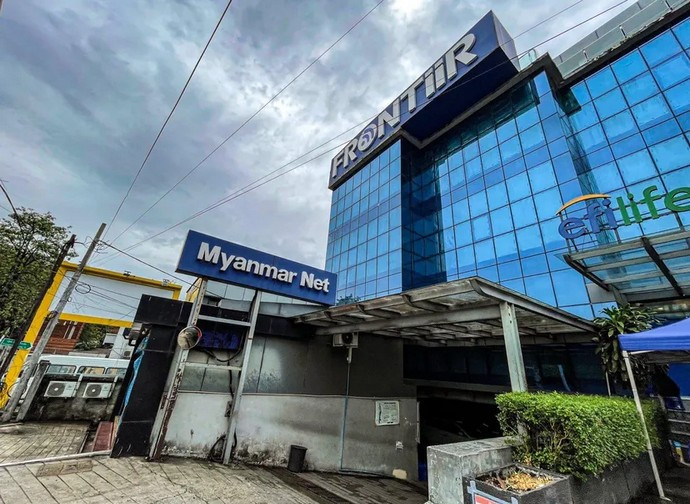European development funds aid repression in Myanmar
According to a report by Finance Uncovered, development funds from the UK, Denmark, and Norway have been used by the Myanmar regime to purchase sophisticated surveillance tools from China to repress dissent, particularly online.

Investigations by Finance Uncovered in May this year have showcased that state-sanctioned investment funds from various European countries, including Norway, Denmark, and the United Kingdom (UK), have indirectly enabled the enlargement of Chinese surveillance infrastructure within Myanmar.
Notwithstanding global denunciation of the repressive Myanmar military regime since the 2021 coup, millions of dollars from public European sources have persisted in making their way into Myanmar’s surveillance industry. Such European bankrolling has permitted the junta to use advanced Chinese-made systems to keep tabs on citizens, clamp down on dissent, and implement draconian internet restrictions.
Upon seizing power in February 2021, Myanmar’s military junta has drastically ramped up on suppressing citizens online, relying on Chinese-provided tools to monitor, hunt down, and arrest thousands of pro-democracy activists and ordinary citizens, with financial support from European taxpayers.
Since 2019, three European development finance institutions have earmarked almost $40 million for Frontiir, Myanmar’s largest internet service provider, through taxpayer-funded investment channels: Notably, British International Investment (BII) invested $26 million, Norway’s Norfund contributed around $3 million, and Denmark’s IFU funded about $10.5 million.
According to Finance Uncovered: “Frontiir has installed equipment capable of tracking people online, blocking websites and preventing people from using virtual private networks (VPNs) which allow users to side-step censorship controls.The equipment was developed by Geedge Networks, a controversial Chinese cybersecurity company founded by the so-called father of China’s Great Firewall, Fang Binxing.”
Adding, Finance Uncovered stated: “Myanmar’s junta had obtained Geedge’s equipment, which could be used to intercept and decrypt messages, block certain websites and prevent people from using VPNs.Around the time the Geedge technology was reportedly activated by the junta in late May, activists claim that there was a dramatic reduction in internet freedom in Myanmar. Myanmar’s military has waged an unrelenting crackdown on digital freedom since it seized power more than four years ago, sparking a brutal civil war that has seen thousands of people killed and millions displaced. Since the February 2021 coup, human rights observers say nearly 2,000 people have been arrested for criticising the junta online, or posting support for anti-regime groups. In September 2021,Norwegian telecommunication provider Telenor announced it was withdrawing from Myanmar because of the junta’s demands that it activate a ‘lawful interception’ system. Telenor said cooperating in such a way would violate Norwegian and international sanctions.A former Telenor employee told reporters they believed it would be ‘impossible’ for an ISP to operate in Myanmar today and not allow authorities access to information on its users. The junta has also imposed internet blackouts in areas where troops are battling ethnic armed resistance groups and civilian defence forces. These continued even after a devastating 7.7 magnitude earthquake struck Myanmar in late March, hindering rescue efforts.”
|
Country |
Fund/Agency |
Amount (USD) |
Stated Purpose |
Involvement Context |
|
UK |
British Int’l Investment |
$26M |
Promote digital access |
Stake acquired prior to coup, maintained after |
|
Norway |
Norfund |
$3M |
Development investment |
Maintained stake, denies knowledge of misuse |
|
Denmark |
IFU |
$10.5M |
Development investment |
Alludes to compliance assurances |
On its end, a Frontiir spokesperson dismissed claims that the company had ever “built, planned, or designed anything related to surveillance” on its network in a statement submitted to Finance Uncovered, claiming such allegations were “completely false.”
Moreover, Frontiir has also told its European investors that “its network has never been used by the Myanmar government to intercept or decrypt communication”.
As per Mizzima website: “The Frontiir case exemplifies how China’s brand of digital repression is being exported globally through opaque corporate partnerships. Geedge Networks has rapidly expanded from $11.1 million in revenue in 2018 to $18.5 million in 2021, marketing its “encrypted traffic visibility” technology to broadband providers worldwide. The company operates under China’s Belt and Road Initiative, while its founder maintains ties to China National Electronics Import and Export Corporation (CEIEC), the same state-owned enterprise sanctioned by the US in 2020 for providing Venezuela with China’s surveillance firewall technology.CEIEC now serves as Myanmar’s “long-standing supplier” of air defense radar systems, command and control systems, and location tracking technology, while China has doubled down with military aid including combat aircraft and drone technology. The junta’s Social Media Monitoring Team (SMMT) now operates as an opaque enforcement body, using this Chinese-supplied surveillance infrastructure to identify dissidents, map social networks, and enable targeted crackdowns. Beijing has even established a joint security company to protect Chinese investments under the China-Myanmar Economic Corridor, effectively militarizing its Belt and Road infrastructure. Together, these interconnected systems create a comprehensive template for digital authoritarianism combined with physical repression that China is refining and tightening as the civil war drags on.”
Revelations that European state funds have financed digital infrastructure enabling Myanmar’s military regime to censor and penalize its own citizens demonstrates the ramifications of investments in politically unstable parts of the world. As war-torn Myanmar continues to be mired in internal strife, Western government financing should be recalibrated considering how the country’s authoritarian regime uses Chinese technology to suppress dissent.
